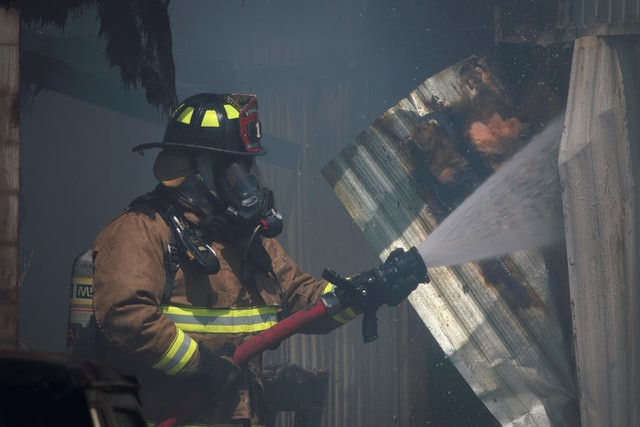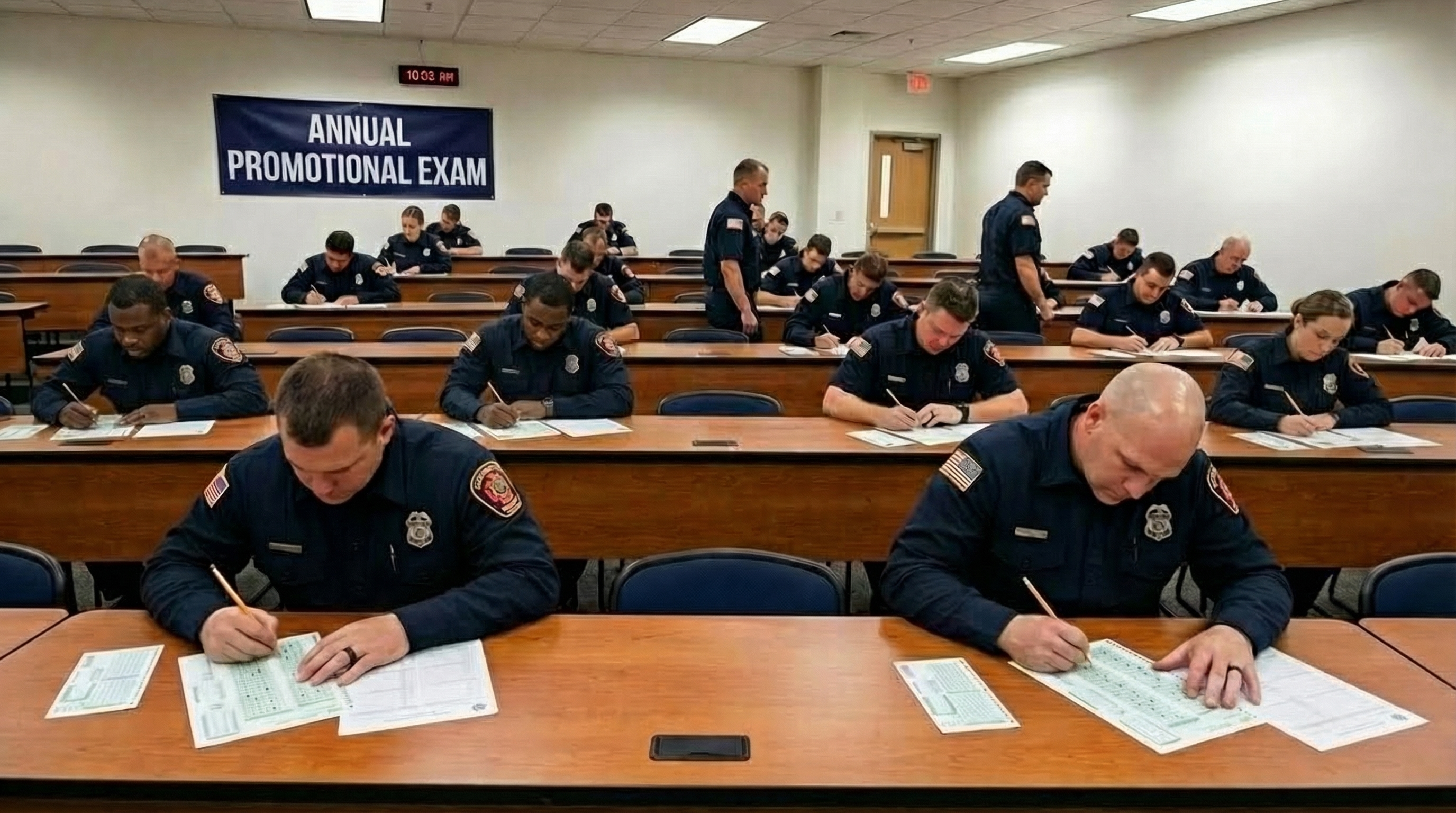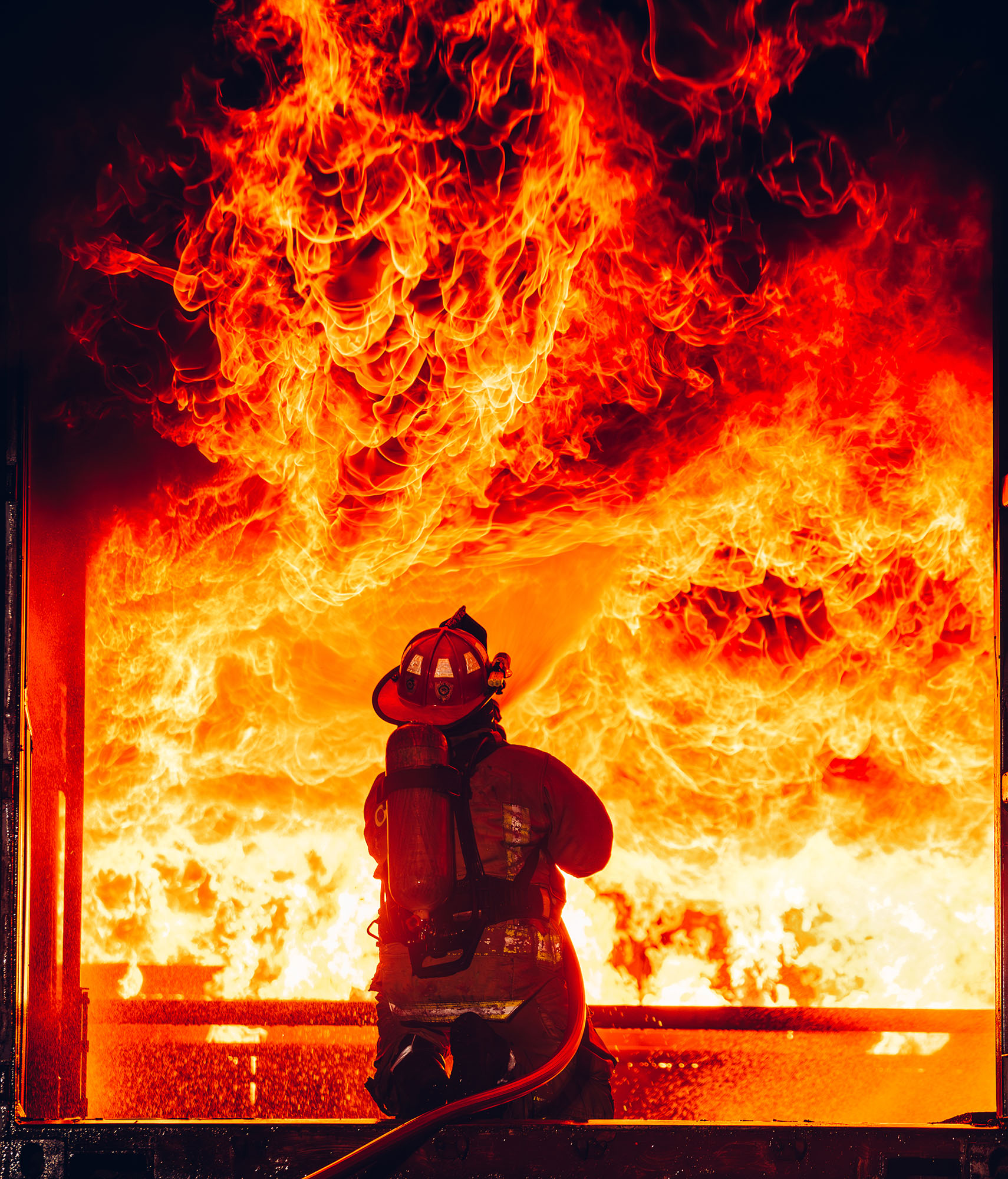When it comes to information retention, sleep plays a big role. According to Dr. Matt Carter at the University of Washington, your brain consolidates your memories while you’re catching those zzz’s. It cleans out all the unnecessary stuff and makes room for new information. And that means a poor night’s sleep after a study session for your fire promotion exam is a problem. Here’s what to understand about the importance of sleep when you’re in study mode, plus three ways to sleep your way to success on your firefighter promotional exam.
The Trouble with Lousy Sleep
Inadequate sleep prevents your body from reaching the memory consolidation point of REM sleep. No REM sleep means no chance for your brain to make room for all of the new information you learned with those practice tests the day before. Your brain focuses first on restoring your body physically first and moves on to memory consolidation afterward. Without a good night's sleep, all of that important memory work is skipped. So what can you do to help ensure productive sleep? Read on!
1. Don’t Sacrifice Sleep for Studying
Sacrificing sleep to study has been proven to decrease test scores, according to Science Daily. That’s why it’s so important to maintain a consistent study schedule. When you routinely put off studying, you end up panic-cramming late into the night. Make the necessary sacrifices so you have adequate time to both study and sleep. It’s the only way to make sure your brain can do its job.
2. Study in the Evenings
Just to be clear, cracking open the books at midnight isn’t the way to go. Start studying around 7 or 8 at night, aiming for a start time that’s a couple of hours before you normally get to sleep. It doesn’t have to be immediately before bed, but the closer it is, the better. Studying in the evenings before bed means better recall the next day, especially if your test is in the morning. If you want to study more than once in a day, sleep in between to benefit from that all-important memory consolidation. And keep in mind that the trick to studying in the evening is to prioritize sleep. If you find yourself reading the same sentence over and over again, it’s time to stop. You should also avoid studying the day of the exam. Your brain won’t have a chance to consolidate the memories, and frankly, if you’re still cramming the day of your exam, you probably don’t know the material as well as you should.
3. Get a Good Night's Sleep the Night Before your Exam
If you aren’t able to keep a consistent sleep schedule in the months leading up to the exam, at least be sure you get a good night’s sleep the night before — even if that means taking a shift off. Points one and two above clarify the point — sacrificing sleep to study will have negative effects, especially the night before an exam. If you stay up late the night before your exam, you won’t retain the information you crammed. And when it comes time to take the test, you’ll have a hard time focusing and you’ll struggle to recall any information, even the stuff you thought you knew already. Go to sleep and let your brain do the work for you.
Bonus: Some Healthy Sleep Habits
1. Set A Sleep Schedule
Go to sleep at the same time every night, wake up at the same time every morning and get at least seven hours of sleep. According to the Mayo Clinic, this helps your body recognize the sleep-wake cycle and will make falling asleep easier.
2. Don’t Stay In Bed If You Aren’t Tired
If you haven’t fallen asleep after 20 minutes in bed, get out. Go read a book or listen to relaxing music (being sure to avoid screens) until you feel tired, and then try to fall asleep again. Over time this will teach your body when it’s time to sleep and hopefully reduce the amount of time it takes for you to fall asleep in the future.
3. Avoid Caffeine and Sugar In the Hours Leading up to Bedtime
Caffeine and sugar too close to bed will make it much harder to fall asleep, so be wary of what you are eating and drinking in the hours leading up to bed.
4. Make Your Bedroom a Comfortable, Quiet Space
Make sure your bedroom is at a comfortable temperature, your pillow is perfect and your blankets are to your liking. Also, be sure your TV is off and the phone silenced so nothing disturbs your sleep. Obviously, when you’re working, you can’t do all of this. Still, be sure to do it when you’re home so you can catch up on all the sleep you missed on duty.
5. Get Tired
This should be an easy one for firefighters, but make sure you’re tired when you lay down in bed. Do this by being active throughout the day. Walk, run, hit the gym, just make sure you have worked your body and tired it out.
6. Try Not To Stress
So many people stay awake at night because they’re worried about something that they can do nothing about until the next day. If this sounds familiar, try writing your worries down. It’s kind of cheesy, but it works well. You won’t forget anything, and your worries will be there for you to deal with the next day. If you’re stressing about your upcoming exam, check out this article to remind you about the things you have control over when it comes to preparing for your exam.

The Takeaway
Sleep is important. Get good sleep during the entire fire department promotional process. Let sleep aid you in your studies so it doesn’t become the enemy during this time. Use the tips above to help you get a better night's sleep — it’ll mean more successful material retention and a greater chance of success on your test.





